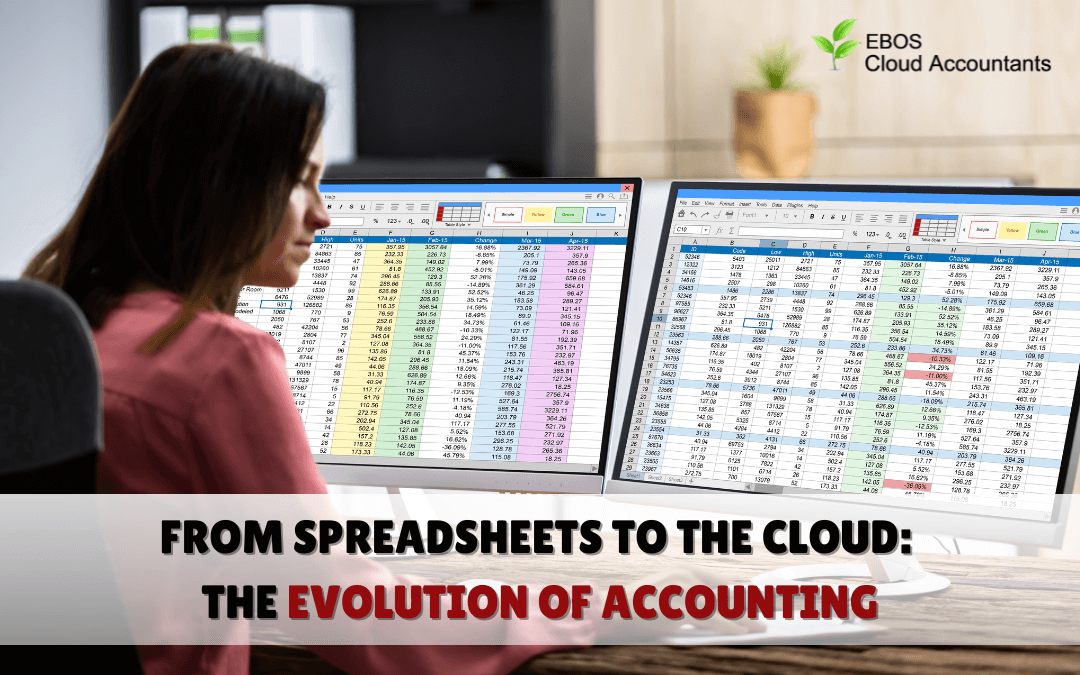Accounting has always been the backbone of business. But how it’s done has changed drastically over the past few decades. What began with ledgers and calculators evolved into spreadsheets and desktop software, and now, we’re in the era of cloud-based accounting.
The journey from paper to pixels—and now to the cloud—has not only transformed how businesses track their finances, but also how they make decisions, collaborate, and grow. Let’s take a closer look at how accounting has evolved and why cloud solutions are shaping the future.
The Early Days: Paper and Manual Ledgers
Before the digital age, accounting was a manual process. Accountants kept records by hand in ledgers—painstakingly writing down every transaction, calculating totals manually, and double-checking their math to avoid costly mistakes. This method required time, precision, and often, a lot of patience.
While it got the job done, it left little room for error or innovation.
The Rise of Spreadsheets: A Digital Revolution
In the 1980s and 1990s, the introduction of computers and spreadsheet software like Microsoft Excel revolutionized accounting. For the first time, businesses could automate calculations, store more data, and create financial models without rewriting entire ledgers.
Spreadsheets gave accountants more flexibility and speed, making financial analysis easier and faster. However, they weren’t perfect. Files could be lost or corrupted, formulas were prone to human error, and version control became a major challenge, especially when multiple people tried to collaborate.
Desktop Accounting Software: Streamlining the Process
To address some of these challenges, dedicated desktop accounting software emerged. Programs like QuickBooks Desktop and Sage allowed for more structured record-keeping, standardized reporting, and built-in compliance features. These systems reduced errors and made accounting more accessible for small and mid-sized businesses.
Still, they had limitations. Software updates required manual installation. Data was only accessible from specific computers. Collaboration was difficult. And storing sensitive financial data locally creates security risks.
Enter the Cloud: Accounting Goes Online
The next major leap came with the rise of cloud computing. Cloud accounting platforms like Xero, QuickBooks Online, and Zoho Books brought accounting to the internet, allowing businesses to access their finances from anywhere, on any device.
This shift has been a game-changer. Here’s why:
-
Real-Time Access: Business owners and accountants can view and update financial data in real time—no more waiting for end-of-month reports.
-
Automatic Updates: Cloud platforms update automatically, ensuring compliance with the latest tax laws and features without manual downloads.
-
Bank Feeds & Automation: Transactions can be synced directly from bank accounts and categorized automatically, saving hours of data entry.
-
Remote Collaboration: Multiple users can work in the same system at once, making collaboration between teams and external accountants seamless.
-
Scalability: Cloud software grows with your business. You can add features, users, and integrations as your needs evolve.
-
Enhanced Security: Contrary to early concerns, reputable cloud platforms offer bank-level encryption, regular backups, and secure user access controls.
The Present and Future: Smarter, Faster, More Insightful
Today’s cloud accounting platforms aren’t just record-keeping tools—they’re full-blown financial ecosystems. Many integrate with inventory systems, payroll, CRM tools, and even AI-driven forecasting engines.
Artificial intelligence and machine learning are now being used to detect anomalies, predict cash flow trends, and suggest smarter financial decisions. In the future, accounting won’t just track what’s already happened—it will help businesses plan what happens next.
Final Thoughts
From ledgers to spreadsheets to the cloud, accounting has come a long way. What was once a manual, time-consuming process is now fast, collaborative, and insight-driven. For businesses, the message is clear: adapting to the latest tools isn’t just about convenience—it’s about staying competitive. The cloud isn’t the future of accounting. It’s already here.
Check out our website at https://ebos-sg.com/ to explore more articles and discover how our Cloud Accountant Services can support you on your business.







